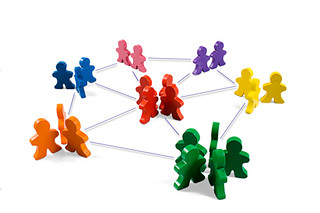
https://voicethread.com/?#q+wikis+in+education.b558097.i2982269 Click this link to view a voice thread that takes a look at one teachers way to include a wiki into her normal curriculum.
Advantages
|
Disadvantages
|
|
Restricted access even with free version
|
Features are limited in the free version, classroom version $99 per year
|
|
Ability to control comments
|
Images must be taken from a third party site and cannot be uploaded directly from PC with free version
|
|
Easily monitor group participation and track changes
|
Plagiarism and copyright issues; be sure everything is cited that is written by you and be wary that outsiders can steal what you’ve created
|
|
Publish class notes, PowerPoint lectures, schedules and policies.
|
Overwhelming for teacher to grade if too many entries
|
|
Previous versions can be recovered if there is a need for it
|
|
|
Access at anytime from anywhere
|
|
|
Students can collaborate and make changes to shared content easily
|
|
How does a Wiki promote interaction and higher order thinking?
-
The process of editing a wiki addresses the problem of “wait time” in questioning. All students, regardless of learning style, have the time to consider the prompt and formulate a response.
-
Wikis foster interaction between students. They can read and review what their fellow classmates write, which can encourage critical thinking as students defend or refute the comments or changes that other collaborators want to make to the wiki.
-
Students have a way to compare the quality of their content to content already posted to the wiki. This provides a interesting twist on peer editing and using student work to model writing skills. Students can add additional information from reliable sources or highlight concerns of other sources used in a project by peers.
-
The editing process encourages critical reading. Students must learn to carefully read what others have written in order to write meaningful comments or add relevant content to the wiki.
-
Students must also learn to read and critique a wide variety of sources in order to create a meaningful and relevant wiki.
-
Students with limited social and/or verbal skills, and who are often unwilling to contribute original ideas in class, may have a more equal footing in online collaborations conducted through the wiki.
- The accessibility of the wiki encourages students to accurately portray information as it "one click" away from viewers.
- The flexibility in organizing the layout of wiki pages allows for students to critically think about the best ways to organize and present content so that it is easy for readers to follow.
How do I use a wiki?
Track assignments
If you ask students to put their research on wikis, you can check in on their progress to make sure they’re on the right path.
Choose your own adventure story
A twist on the multi-author story could be a choose your own adventure story, where each student branches out into a different path.
Group authoring
By asking groups to use central documents in a wiki, you can ensure that everyone’s documentation will be uniform.
Grandma timeline
Have your students create a history timeline using Grandmas as units of time.
Organize ideas
Allow group members to post their ideas in a wiki, and you’ll cut down on duplicate ideas, while at the same time allowing them to build upon the ideas.
Fan clubs
Start fan clubs for your students’ favorite figures from history and ask them to contribute their favorite quotes, photos, and other tidbits together.
Exam review
Encourage students to share review notes and other helpful pieces of information on your classroom’s wiki.
Peer review
Allow students to draft their papers in a wiki, then ask other students to comment it.
Student portfolios
Assign portfolio pages to each of your students, and allow them to display and discuss their work.
Correction competition
You can post a document riddled with mistakes, then have students compete to see who can fix the most errors fastest.
Peer editing
Ask students to edit each others’ work for spelling, grammar, and facts based on a style guide or rules you’ve defined.
Vocabulary lists
Encourage students to submit words that they had trouble with, along with a dictionary entry.
Virtual field trips
Have your students research far away places they would like to go on a field trip, and get them to share images and information about the location.
Create presentations
Instead of using traditional presentation software, put presentations on a wiki.
Write a Wikiboo
Make it a class project to collaboratively write a reference book that others can use.
Study guides
Ask students to create study guides for a specific part of the unit you’re studying.
Readers’ guides
Have your students create readers’ guides to share their favorite and most important parts of works you’ve read in class.
Solving wiki
Post difficult math problems, such as calculus, so that the class can collaboratively solve them.
Glossary
Get your class to create a glossary of terms they use and learn about in new units, adding definitions and images.
Class encyclopedia
Ask your class to create an "encyclopedia" on a topic, adding useful information that can be built upon through the years.
Create exploratory projects
If you’re teaching a new subject, ask your students to collect and share information in the wiki so that you can learn together.
Comments (0)
You don't have permission to comment on this page.